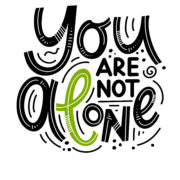Now, more than ever before, people are aware of how essential it is to talk about mental health and mental illness in an open and respectful manner. Most likely you’ve heard these terms in the past, maybe even more often since the beginning of the COVID-19 pandemic, especially when referring to preteens’ and teens’ mental health. You probably have a general idea of what they mean but you may not necessarily know the specifics. For example, you may ask yourself what is the difference between mental health and mental illness. And while thinking about your young person’s experience, you may also be wondering if when they feel sad or unhappy it is a sign that they have a mental health problem. These are excellent questions. They are very normal and completely appropriate.
So, what is mental health? What is mental illness? In what way are they connected? The same way we all have physical health, we also all have mental health. Our physical health is the state of our body, while our mental health is the state of our mind, feelings, and emotions. Here is a quick look at what each of those terms refers to.
- Mental health is made up of our emotional, psychological, and social well-being. It affects how we think, feel, and behave. It also governs how we handle stress, relate to others, and make choices.
- Mental illness refers to a specific and diagnosable medical condition that has an impact on our mental health. It involves changes in our emotions, thinking, and/or behavior.
It’s important to note that mental health and mental illness tend to be used as if they mean the same thing, but that is not the case. Not all people will experience mental illness in their lifetime, but everyone will encounter some challenges with their mental well-being the same way we will all now and then have challenges with our physical well-being. Mental illness is not the same as feeling sad, unhappy, or stressed. It refers to a state that causes intense distress and that affects a person’s ability to function over a long period of time. Mental illness does not show up overnight. There are warning signs you should be aware of because they can be a sign that your young person may be developing a mental illness. These warning signs include the following.
Today, according to Newport Academy, one in five teens has a diagnosable mental health disorder such as depression or anxiety. Unfortunately, mental disorders associated with the teenage years are currently on the rise. In fact, experts say that mental disorders in teenagers are at an all-time high.
One may wonder why mental health issues can be seen as early as in adolescence. One important reason for this is that, although mental illness can develop at any age, it often begins in childhood. In fact, according to the American Psychiatric Association, fifty percent of mental illnesses begin by age 14, and three quarters begin by age 24. Full blown mental disorders don’t develop overnight though. They start with early warning signs and small changes or a feeling that “something is off.” The symptoms then gradually worsen over time until they turn into a major mental illness.
When it comes to symptoms of mental illness, it’s important to distinguish between acute and chronic mental illness. Acute mental illness usually develops very suddenly but only lasts a short period of time, such as a few months. Chronic mental illness, on the other hand, refers to psychiatric disorders that may develop gradually but with persistent symptoms that severely interfere with daily functioning. Moreover, it’s not unusual for more than one mental disorder to be diagnosed in one individual. For example, you may be suffering from Major Depressive disorder and PTSD as well as a substance use disorder. The co-existence of two or more psychiatric disorders, one of which is a substance use disorder, in one same person is called psychiatric comorbidity.
Types of mental disorders
There are many different types of mental disorders. Some include:
- Anxiety Disorders such as panic disorder, obsessive compulsive disorder (OCD) and phobias.
- Attention Deficit Disorders (ADHD – ADD)
- Bipolar Disorder
- Mood disorders such as major depression, dysthymia and substance-induced mood disorder.
- Dissociative Disorders
- Eating Disorders
- Psychotic disorders such as schizophrenia.
- Post-Traumatic Stress Disorder (PTSD)
- Personality disorders such as borderline, narcissistic, antisocial, histrionic, paranoid, schizoid, avoidant, and dependent personality disorder.
What causes mental disorders?
Although the exact cause of most mental illnesses is not known to this day, it is becoming clear through research that many of these conditions are caused by a combination of biological, psychological, and environmental factors. Some of these contributing factors include:
- Genetics and family history are known to play a significant role in the development of mental illness.
- An individual’s environment can influence their mental health. Indeed, life experiences such as stressful or traumatic events or a history of abuse and neglect, especially if they occured in childhood, can potentially lead to some serious mental disorders.
- Some biological factors are also at play such as chemical imbalances in the brain (e.g. imbalances of certain neurotransmitters such as dopamine, serotonin and norepinephrine.)
- Traumatic brain injuries or certain infections have also been linked to brain damage and certain mental disorders such as depression, anxiety and PTSD.
- A mother’s exposure to certain viruses, stressors, toxic chemicals, and alcohol or drugs while being pregnant can potentially result in the development of mental illness. For instance, maternal influenza viral infection was found to be associated with an increased risk for schizophrenia in the adult offspring.
Warning Signs of Mental Illness
There are warning signs you should be aware of because they can be a sign that your child may be developing a mental illness. These warning signs include the following:
- Excessive worrying or fear
- Feeling excessively sad or down
- Extreme mood swings, including uncontrollable “highs” or feelings of euphoria, alternating with periods of feeling down and depressed
- Yelling and fighting with family and friends
- Withdrawal and avoiding friends and social activities
- Thinking about suicide
- Feeling helpless or hopeless
- Excessive smoking, drinking, or using drugs
- Thinking of harming themselves or someone else
- Having persistent thoughts or memories that they can’t get out of their head
- Excessive thoughts about weight gain, food consumption, or body image/self-esteem tied to appearance
How are mental disorders diagnosed?
Getting a reliable diagnosis of mental illness is essential. It will provide an important tool for you and for your doctor who will then be better able to advise you and guide you on treatment options. Unfortunately, there is no specific medical test that can provide a diagnosis of mental illness. In order to obtain a good diagnosis, your health care provider will carry out a number of tests such as:
- A medical history
- A physical exam that will help your doctor rule out any physical ailments that could possibly cause your symptoms.
- Some lab tests will be done such as a check of your thyroid function and a possible screening for alcohol and drugs.
- A psychological evaluation will be conducted, preferably with a mental health professional who will discuss with you your symptoms, your thoughts, your feelings and your behavior patterns. You may also be asked to fill out some questionnaires that will help answer these questions.
What treatments are available for mental disorders?
The kind of treatment options that will be suggested to you by your mental health care provider will depend on which mental disorder you have, how serious it is and what will work best for you.
There are several types of treatment that are available to you to address your mental health needs including:
- Psychotherapy or counseling – It’s a very common treatment for mental health disorders. It’s also referred to as “talk therapy” because it involves talking to your therapist about your feelings, emotions, thoughts and behavior patterns. Some common talk therapies you may have heard of are Cognitive Behavioral Therapy (CBT) and Dialectical Behavior Therapy (DBT).
- Prescription medicine – Medications are another very common type of treatment. Medication is usually used to modify the way certain chemicals involved in your emotions and thought patterns function in your brain. It’s essential to understand that prescription medicine will improve symptoms you may be experiencing but, used alone, they are not sufficient to cure a psychiatric illness. There is a consensus among mental health care providers that medication should be used in conjunction with other types of therapy in order to ensure their long term effectiveness. Some of the most common prescription medicines that can be found to treat mental illness are: antidepressants, anti-anxiety medications, mood stabilizers and anti-psychotic medications.
- Support groups – They can bring you a great deal of support and help you gain some insight into what you’re going through. They can also make you realize that you are not alone to experience a condition like yours. They can be a source of new friendships, resources and tips on how to manage and live with your condition.
- Hospital or residential treatment programs – It can happen that your mental health issues become so severe that it may be difficult for you to take care of yourself or that you may be in danger of hurting yourself or others. In this case, you may need to receive treatment in a hospital or a long-term program that will help you get through this difficult time.
If They Need Help
If you think your young person is experiencing a mental health challenge, the first thing you need to know is that you are not alone, far from it. Many caregivers are in the same position as you, especially when you know that recent studies indicate that approximately 1 in 5 teens in the U.S. aged 12 to 18 suffers from at least one mental health disorder. There are many resources available to you out there that will bring you all the information and the support you need to navigate this challenging time. It is very important that you educate yourself, read and gather as much information as you can on preteens’ and teens’ mental health and the mental illnesses that can affect them. The more you know and understand about the warning signs and how your young person’s mind works, the easier it will be for you to notice any potential changes in their emotions, thinking, or behavior. This way you will be alerted that something may be wrong and that your young person needs your caring attention and compassionate support.
Another benefit of educating yourself about your young person’s mental health issues is that it will help you communicate with them a lot more easily, openly, and compassionately. This will make a world of difference for them. A greater and more extensive knowledge base will help you better understand what they are going through and the way they experience and view themselves and the world around them. Your young person will naturally sense that you are not focusing on their behavior but that what is most important to you is how they feel. It will send them the message that you want to listen to them, be there for them, and not be judgmental in any way. The more you can put yourself into their shoes, the less alone, scared, and isolated they will feel, which is paramount to their long-term recovery.
In order to support your young person in the best possible way, there are a few do’s and don’ts in the way you communicate with them that can be useful for you to be aware of.
DO’s…
- Be genuine. Don’t try to hide how you feel if you feel uncomfortable with the discussion. It is possible that the discussion makes your young person uncomfortable too and it might be reassuring for them to know that you both feel the same way.
- Be kind and gentle in the way you talk to them. Make sure to stay calm and reassuring.
- Talk to them privately. Set some special one-on-one time with them, and assure them that your discussion will stay confidential, unless you have reasons to think they want to hurt themselves. Give them your undivided attention with no distractions.
- Allow for silence. Keep your questions open-ended. Give them the space to express themselves freely and at the pace they choose. Listen very carefully to what they are willing to share with you. Most importantly, stay nonjudgmental and make sure to focus on their needs in that moment.
- Let them share as much or as little as they want to. Don’t pressure them into talking.
- Be available without being intrusive.
- Show empathy and let them know that you love them. Love is a very powerful emotion with great healing power.
- Normalize what your young person is going through. Reassure them by explaining that having a mental health issue is common and that they can and will get better.
- Build positive relationships and collaborate with your young person’s educational team to support your preteen’s or teen’s needs.
DON’TS…
- Don’t try to diagnose or second-guess their feelings.
- Don’t minimize their feelings or tell them they shouldn’t feel a certain way. They need your empathy and your understanding more than ever.
- Don’t tell your young person what they should or shouldn’t do. Instead, ask them what they want you to do to help them.
- Don’t argue with your young person if you meet some resistance. Instead, stay calm and go back to listening, rephrasing, and asking open-questions. You can help to co-regulate them.
- Don’t let your emotions rule your response. Take a deep breath. Don’t show you’re angry and don’t use negative words such as, “Can’t you get your act together for once?” Also, be sure not to give in to guilt or shame. Your young person needs your strength and needs you to be part of the solution.
- Never compare your young person to siblings or to other children; “I wish you were more like your sister. At least she doesn’t have all these problems.”
- Don’t share their personal struggles on social media or with close friends without their permission. Instead, find trusted resources and support systems to whom you can rely on for support.
Be Kind to Yourself
Caring for a young person with a mental illness can be particularly challenging and taxing. They need you. They need your love and your support and you give your all to them because you want to be there for them and help them get better. But supporting your young person in that way requires a lot of energy on your part, and that energy can get depleted significantly over time.
While it is your responsibility to care for and support them, it is also your responsibility to take care of yourself. Do this by adjusting your priorities and lifestyle, and by being aware of any possible shifts in your own mental health (e.g., struggling with sadness, increased anxiety, substance abuse, etc.).
Caring for your own physical and mental well-being is one of the greatest gifts you can give yourself and your young person. It will make you more resilient, help you recover more quickly from setbacks, and it will help you adapt more easily to the ups and downs associated with your young person’s difficulties. Moreover, not only will it ensure that you are healthy and able to care for your young person, but you will also serve as a model for them to follow.
Here are a few suggestions to take care of yourself:
1. Let go of guilt and shame. There is nothing wrong about experiencing negative emotions. Be aware of them and then try to let them go. They are unnecessary emotional burdens. Be aware that serious mental disorders are typically the result of biological factors that are beyond you and your preteen’s or teen’s control. It’s nobody’s fault.
2. Surround yourself with caring, loving, and supportive family members and friends. Don’t isolate yourself. You give so much of yourself to your young person and it’s essential that you too receive the support you need to help you through these challenging times.
3. Connect with other caregivers. Find support in a caregiver support group. Knowing you are not alone to experience the challenges you’re facing will make a world of difference for you. You will feel heard, understood, and validated in what you feel. There are several organizations that will direct you to their local organizations across the country.
4. Connect with other organizations.
-
- The National Alliance on Mental Illness (NAMI) HelpLine provides the one-on-one help and information necessary to tackle tough challenges that you, your family, or friends are facing. Contact the NAMI HelpLine to find out what services and supports are available in your community, or text NAMI at 741741.
- Mental Health America (MHA)
- SAMHSA’s National Helpline: 1-800-662-4357. This helpline is a free, confidential, 24/7, treatment referral and information service for individuals and families facing mental and/or substance disorders.
- ADAA Directory This website allows teens and family members to search support groups in their local area, as well as phone or online groups.
5. Don’t take your young person’s behavior personally. Depressed and anxious preteens and teens can say and do very hurtful things. Although you are the target, it usually has nothing to do with you. It has more to do with how much pain your young person is in. If you are on the receiving end of harsh words or actions, go into another room, close your eyes, breathe deeply and repeat silently to yourself, “I know you’re in pain. I know you’re hurting. You can shout or be angry at me all you want. When you’re done doing so, I’ll be right there loving you, because my love is way deeper than your pain.”
6. Take care of your physical health.
-
- Exercise daily – This doesn’t necessarily mean going to the gym. You can stretch, go for short walks, or use stairs instead of elevators. Daily exercise produces stress-relieving hormones and will improve your overall health.
- Eat healthy and balanced meals – Focus on unprocessed food, fruit, and vegetables. They’re excellent for your energy levels and your mood.
- Get plenty of sleep – Adults greatly benefit from sleeping between 7 to 9 hours per night. And don’t hesitate to take short power naps during the day. Good sleep hygiene will make you more resilient to challenging situations.
- Practice mindfulness and meditation – Deep breathing, meditation, deep relaxation techniques, and the practice of mindfulness are very effective and long-lasting ways to reduce stress and regain your emotional balance.
- See your health care provider – Many caregivers put their own health on the back burner, especially recently during this pandemic period. Be sure you prioritize your own annual physicals and follow up with your medical providers about any concerning health needs of your own.
7. Try to notice the positive things in your life. Things are hard and challenging for you, but see if you can notice the positive things in your life. It can be as simple as a good meal, a beautiful day, or a call from a dear and caring friend. Even if it seems insignificant to you, it is still very real and that matters greatly because it can suddenly shift your mood and change your experience of that day.








